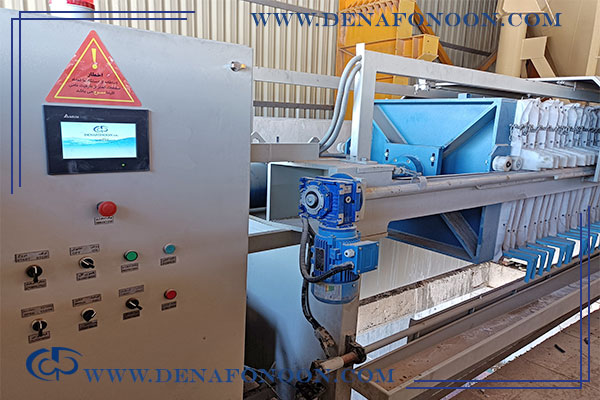Stone Industry Filter Press | Functionality | Importance | Benefits
High quality stone press filter for stone cutting and processing industries .efficient filtration system designed to improve the performance and longevity of stone presses,ensuring cleaner operations and better stone surface finish
VisitCount 59
Stone Filter Press
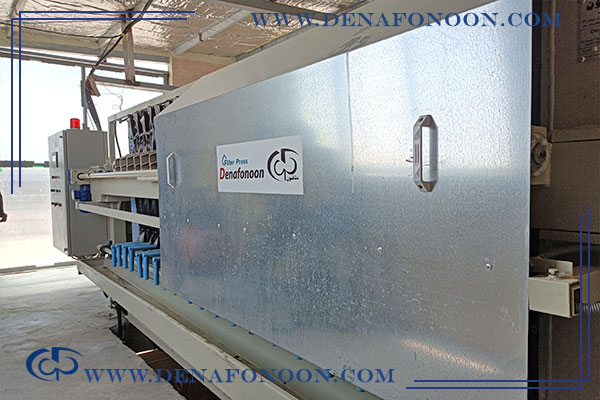
As we know, filter presses have extensive applications across many industries. The stone industry filter press is one type of industrial filter press whose basic operating principles are similar to those used in other industries. However, depending on the specific industrial activity, there are various types tailored to different needs.
In this article, we aim to explain the operation of the stone industry filter press and emphasize the importance of using this device. Nowadays, with the pressing issue of water scarcity and the threats it poses to industrial factories, treating and recycling consumed water is among the most critical issues requiring special attention.
In stone-related operations—such as working with marble, granite, quarries, and workshops—water plays a crucial role from the cutting stage through polishing. The importance of water in these processes is undeniable.
The Challenge of Wastewater Treatment in Stone Industry
Stone factories often use chemical substances during processing, and traditional settling ponds are insufficient because many materials have similar specific gravity to water. As a result, these suspended particles remain in the water and, when recirculated, damage stone grinding and polishing tools.
Modern wastewater treatment systems incorporate clarifier tanks and flocculant powders, which result in producing clean, treated water that significantly improves polishing and grinding quality.
Why Recycle and Treat Water
To prevent overheating of tools and reduce sludge formation in various sections, water must either be efficiently recycled or returned to nature without wastage. Proper water treatment and recycling in factories have numerous benefits, including but not limited to
Benefits of Using Filter Press in Stone Industry
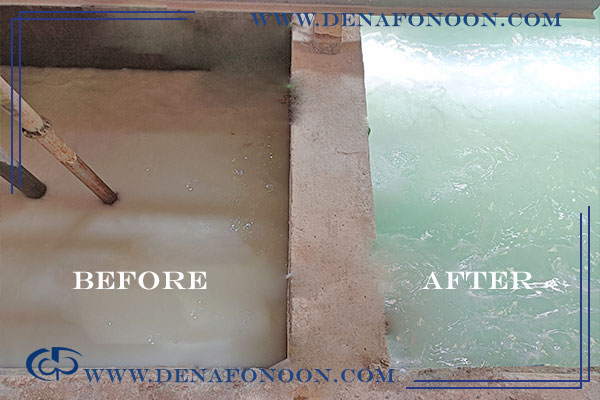
- Significant water savings (up to 90%)
- High-quality water treatment
- Improved grinding quality
- Enhanced polishing results
- Reduced wear and tear on equipment
- Efficient use of water and energy resources
- Space-saving inside the factory
- Fully automated operation, reducing labor needs
- Environmental protection
You can easily compare the slurry produced by stone factories with the filtered water output from a filter press to appreciate the efficiency of this device and the entire treatment system. The slight turbidity that remains is due to the natural coloration of the stone water, which can be clarified further by adding a PAC (Polyaluminum Chloride) solution, producing water as clear as drinking water.
Two Methods for Water Treatment in Stone Factories
- Traditional Method
- Modern Method (Using Filter Press)
Traditional Method
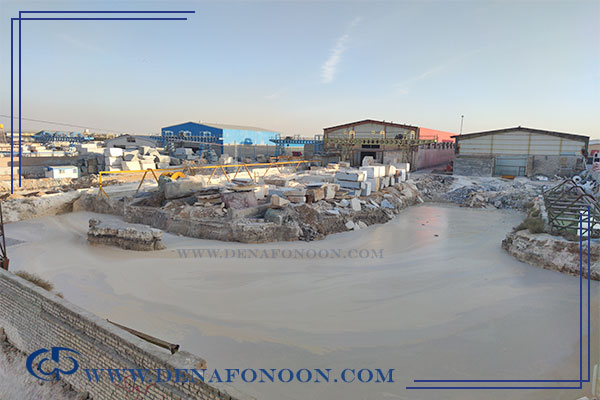
Historically, many stone factories have relied on multiple settling ponds. However, this method has become obsolete due to several disadvantages:
- Requires large land areas for sludge collection ponds
- High costs for construction and maintenance
- Excessive water consumption
- High labor requirements
- Environmental pollution and irreversible damage
- Unclean and disorganized working environment
The photo above (if available) highlights the large space occupied by traditional wastewater treatment ponds.
Modern Method (Filter Press System)
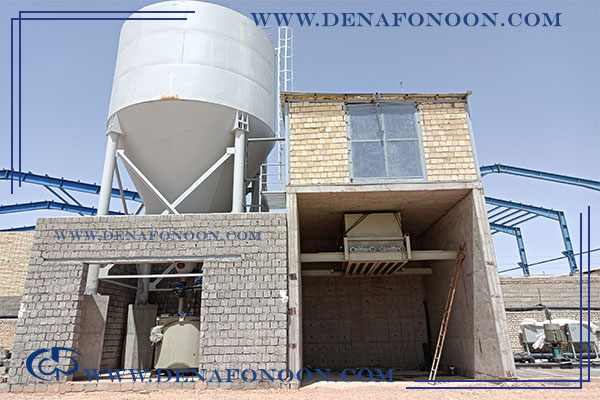
In the modern method, the entire slurry from the stone factory enters a specialized tank. Then, a pump transfers the slurry into a settling tank (clarifier), while flocculant powder is added. This powder not only accelerates sludge settling but also cleans the tank’s interior surfaces.
Filtered water exits from the top of the clarifier and is collected in a clean water tank. This water is then recirculated for repeated use in the production process. The sludge collected at the bottom of the clarifier is funnel-shaped and is pumped to the filter press.
The filter press homogenizes the sludge and, using automatically opening and vibrating plates controlled by a PLC system, extracts water from the sludge. The remaining dry sludge cake is collected in a special container for disposal or further use. The system may also include automatic washing features for maintenance.
Conclusion
Given the global water crisis and the critical need for clean, recycled water, modern wastewater treatment systems such as filter presses are indispensable in the stone industry. Not only do they optimize water consumption, but they also significantly enhance product quality and protect equipment.
Investing in such systems is investing in a more sustainable and efficient future for the stone industry.


